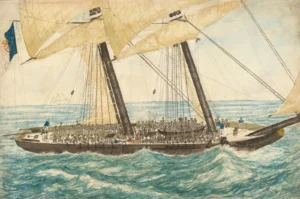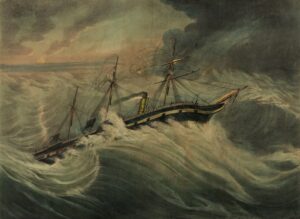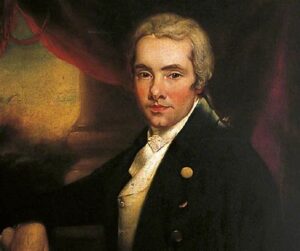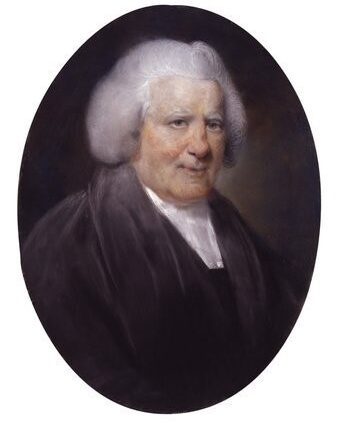Learning From The Masters
Learning From The Masters
In the last post we considered a quote from John Wesley, one of the master preachers of the past. We continue the theme of learning from the masters of preaching in history in this post. We consider today a quote from John Newton, another 18th century English preacher.
From Slave Trader To Believer
Newton was born on July 24, 1725 in London. Childhood was not easy for young John, to say the least. His mother died when he was 7 years old. His father, a sailor, began taking his young son with him on voyages when he was 11 years old. Remember that the life of a sailor back then was pretty rough, and that is what Newton grew up with.
 At the age of 18 the British Navy pressed him into service. He didn’t like the disciplined life of a British sailor, however, and tried to desert. As a punishment, the ship’s captain sent him to a passing slave trader. This life was easier, and suited the young’s desired lifestyle. He called it, “an easy and credible way of life.”
At the age of 18 the British Navy pressed him into service. He didn’t like the disciplined life of a British sailor, however, and tried to desert. As a punishment, the ship’s captain sent him to a passing slave trader. This life was easier, and suited the young’s desired lifestyle. He called it, “an easy and credible way of life.”
Eventually, he rose to the position of navigator. It was in that position that he was trying to steer his ship through a rough storm, when he felt the first stirrings of faith. His mother taught him the Christian faith, but now he called upon God himself. The date was March 10, 1748. He celebrated that day as his conversion day with special prayers each year.
From Believer to Preacher
In 1754 poor health forced him to leave the sea. The ministry called to him, and so he studied hard, and  accepted ordained in the Church of England in 1764. A position as a curate in a town named Olney opened, and he began ministry there. He focused on preaching, of course, that’s why we are learning from the masters by focusing on him in this post. But he also became a writer of hymns–hundreds of them. The best known that have made it to the modern church are Amazing Grace and Glorious Things Of Thee Are Spoken.
accepted ordained in the Church of England in 1764. A position as a curate in a town named Olney opened, and he began ministry there. He focused on preaching, of course, that’s why we are learning from the masters by focusing on him in this post. But he also became a writer of hymns–hundreds of them. The best known that have made it to the modern church are Amazing Grace and Glorious Things Of Thee Are Spoken.
From Preacher to Abolitionist

William Wilberforce
The former slave trader met with William Wilberforce in 1785. Wilberforce is credited with tirelessly working in politics to abolish the slave trade through Parliament At the time Newton met with him, the politician was considering becoming a preacher. John Newton counseled him to stay with politics, and became his friend and counselor for the remainder of the fight against slavery.
It took 20 years before the British Parliament abolished slavery. Here is a description of the role he played in that struggle along with Wilberforce and others.
In 1787 Newton helped Wilberforce found the Society for Effecting the Abolition of the Slave Trade, more commonly called the Anti-Slavery Society. The following year Newton wrote Thoughts Upon the African Slave Trade, a graphic account of his experiences aboard slave ships that included a repentant confession of his personal involvement in the trade. His pamphlet sold out immediately, and the second edition was sent to every member of Parliament. Newton would go on to testify against slavery at parliamentary hearings….
Newton died on December 21, 1807, 9 months after the British Parliament outlawed slavery.
Learning From A Master
John Newton continued to preach into his old age. There are some wonderful stories about him as he got older. He began to get more and more confused, probably the early signs of dementia. He would tell those who came to visit, “Two things I remember: I am a great sinner, and Jesus is a great Savior.”
Here is the quote from John Newton that has inspired me:

I like that idea. When I preach I know that there are hard hearts in my audience, but I also know that there are broken ones. Prayers for awareness of this reality should be part of our preparation in preaching. This awareness should also impact our planning of sermons for the year, so that we balance our preaching between the two extremes.



